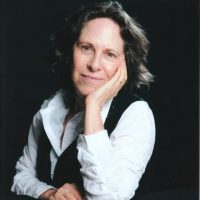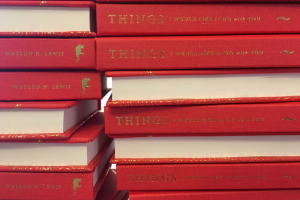In this moment, when our world has stopped spinning on its axis, we switch on the news or read the headlines and see death all around us. The count of precious lives lost continues to grow.
Some will continue to deny their vulnerability; some will continue to live life as it was. But others will wake up in this moment, more acutely aware of the tenuous thread of life, more acutely present to the gifts of love all around us and to the deeper truth that all this shall pass.
This is mortality awareness.
Like a thief, death can slip in and steal a life at any age. Some young people are touched by a tragic death in the family or even a near-death of their own. But they tend to recover and forget — falling back under the spell of youth and the delusion of limitless time.
When adults are touched by death it can penetrate more deeply, acting like a divine messenger and leaving us more aware of a shortened time horizon.
But, after some time, we too tend to fall back to sleep. Looking at death is a bit like looking at our shadows: We catch a glimpse for a moment, then forget, then remember, then forget again.
Most of us just turn away from the breath of death. And that inner turn brings us back to the theme of denial — the epidemic refusal to acknowledge what is, to acknowledge “I too shall pass.”
Denial always has its reasons: “I’m special, a good Catholic or Muslim.” “I’m part of something important.” “I take Lipitor.” “I’m a vegan.” “My mother lived until 102.”
The voice of this shadow character fends off mortality awareness, whatever its rationale. And this denial blocks our capacity to see the whole truth, reinvent ourselves, and cross over from role to soul. It blocks our capacity to be fully present now.
In the West, where death is a taboo topic, we carry an unconscious image of Father Time in the collective shadow: an aged bearded, winged man, dressed in robes, carrying a scythe in one hand to harvest people and an hourglass in the other to show us the passage of time. This ancient image of the individual’s limited, linear time is not universal; other cultures see time as cyclical, spiral, and unending. In India, for instance, Kali, wearing a necklace of skulls, is the goddess of birth, death, and transformation, all in one archetypal image.
In my interview with Jungian analyst and prolific author James Hollis, 78, most recently of The Examined Life, he kept returning again and again to this theme. “Our awareness of death is part of an examined life. Mortality awareness is not morbid. Mortality, not perpetuity, makes meaning possible. It makes our choices matter.
“We believe that we have a problem because we feel separate from nature,” Jim continued. “Death is not a problem for nature or for divinity. But it’s a problem for us, for the ego’s sovereignty. To really grow up, we need to accept our inevitable death.”
Jim linked our capacity for holding mortality awareness to our capacity to live full lives. “People with the most anxiety take the least risk, so they have a big unlived life and tend to have regret when facing death. People with less anxiety live life more fully and don’t have that fear at the end. They most fear the loss of others.”
The tension between our innate will to live and our ever-present awareness of inevitable death has been a theme of religion, philosophy and psychology for eons. The existentialists refer to “death anxiety,” the psychoanalysts to “fear of annihilation.” And both speculate ad infinitum about the consequences.
Mortality awareness is a portal to living fully here, now, in presence. Presence is a heightened awareness of our momentary bodily sensations, feelings, and thoughts, which can expand out into a presence for others, attuned to their feelings and thoughts, expanding out to the oak tree and connecting us to all living things. Presence pierces the veil of denial and reveals to us the sacred value of life in every moment, and the sacred value of every circumstance as a teaching, an opening to something larger. It permits us to see through the emptiness of distraction and the meaninglessness of the ego’s futile efforts.
As I write this, I can see, in my mind’s eye, the clock on the wall in Ram Dass’ home: There are no hour numbers. Every hand points to “NOW.”
But the heroic ego is so terrified of annihilation that it tries everything to deny it, building fortresses of all shapes and colors. Proponents of religious dogma use this existential fear to coerce us to be good children and moral adults and to behave in certain ways to go to heaven or to have a positive reincarnation, thereby transcending death.
There are some exceptions to cultural denial, such as the Day of the Dead in Mexico and Ash Wednesday, when ashes are placed on the heads of worshippers, who are told, “You are dust.” In the rule of St. Benedict, momento mori encourages Benedictine monks to have death always before their eyes. In Islam, Sufis practice “remembrance of death” by going to graveyards for contemplation, and in Tibetan Buddhism, monks practice lojong, awareness of impermanence, the inevitable death of the body and its uncertain timing, which is out of our control.
As the Buddha said, “Of all footprints, that of the elephant is supreme. Similarly, of all mindfulness meditations, that on death is supreme.”
If we are fortunate when we face mortality awareness, we may have a revelation about the whole truth of life. As a result, our ego may be humbled. If we are not, the ego continues to strive for immortality through heroic deeds, gathering possessions and rank, even creative endeavors and legacies. Integral philosopher Ken Wilber called this the Atman Project — the attempt to find the Timeless in time, the striving to find Spirit in substitute gratifications which, in the end, are not That.
With mortality awareness, heat is applied to the psyche and it slowly generates an alchemical shift. Rabbi Zalman explained it this way: “The more we embrace our mortality, not as an aberration of God and nature but as an agent urging us on to life completion, the more our anxiety transforms into feelings of awe, thanksgiving, and appreciation.”
What is the obstacle at this portal? The sixth Shadow or unconscious inner obstacle: the mind’s movement to regret about the past or to fear about the future — the absence of life completion. Emotional unfinished business leads us to look back with remorse or forward with anxiety. It leads us to reminisce and wish, “if only….” Or to look forward and fear, “what if…”
Rabbi Zalman wrote that this trap opens when we begin the art of life completion by repairing our relationship injuries, forgiving ourselves and others, rewriting our stories of the past from a longer, deeper viewpoint, and gathering the wisdom of our life experience. Without this inner work of age, the portal to presence will remain closed.
Anyone who has a regular meditation practice knows this truth. When the mind wanders, we are not fully here, in the moment. With pure awareness, we can learn to witness the noise and return to presence. With shadow-awareness, we can learn to break through the denial of death, allowing the fear and dread that is stuffed away into the shadow to enter conscious awareness. Yes, I too shall pass. . . Yes, I too shall pass. . .
Paradoxically, as this happens again and again, the fear decreases, and the energy that was stuffed away with a lifetime of denial returns to us, available for a more vital future.
Mortality awareness may show up in a mundane moment: Several years ago my 80-year-old friend went to Costco to buy toilet paper — and wondered if he would use it up.
It may show up only now, as the death count from the virus rises.
It may sound an urgent alarm, such as with a serious diagnosis. In 2011, two years after Steve Jobs had a liver transplant due to pancreatic cancer, he gave a commencement speech and spoke of a quote by which he had lived his life: “If you live each day as if it’s the last, someday you’ll most certainly be right.” He reported that he had used this awareness to gaze into the mirror each day and ask himself: “If this were my last day, would I do what I was about to do? If not, I needed to change.”
Stewart, a dear friend, 84, had been speaking openly to friends and family about his “slow guide to Stop.” He was deeply enjoying the moment with family, his artwork, and cooking. Then a doctor gave him a prognosis: 10–18 months.
“It just got real,” he told us. “I’m at the top of a roller coaster about to dive. And it’s okay. My heart is open. No regret. And deep gratitude for an early mystical experience of seeing deceased loved ones. I know that death is not the end. I don’t believe it; I know it.”
I felt so grateful to Stewart for modeling the acceptance of mortality, not only mortality awareness, for all of us. His capacity to be at peace stood in stark contrast to other friends who had struggled with acceptance to the end.
Rob, a client who watched his father die, allowed that deep loss to become a reflection of his own mortality. He told me that it forced him to reevaluate everything, his ego’s agenda in work and marriage, his difficult dynamic with his adult daughter, and his religious orientation. He even saw his shadow’s lifelong obsession with sexuality in a broader perspective and wanted to do inner work to let it go.
“My values and priorities for midlife,” Rob told me, “don’t fit my values and priorities for late life. When I’m dying, I don’t want to be regretting that I didn’t work harder.” He retired soon after to help raise his grandson and to join the board of a conservation group that fights against animal extinction.
Mortality awareness can act as an agent of altered consciousness that sheds light on every relationship, every goal, every belief, every moment. It is the riddle of late life.
Today, in this moment, it is the riddle for everyone.






Read 0 comments and reply